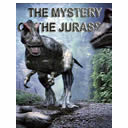The Strange Case of Peking Man
One of history's most profound archeological discoveries occurred at an excavation site outside of Beijing during the 1920s when hundreds of fossilized fragments were unearthed. Upon examination, it was determined that these fossils belonged to members of a human lineage dating back 750,000 years. The remains were collectively given the name Peking Man, shipped to the United States for safekeeping during World War II, and vanished en route. In spite of a few promising leads, they still haven't been recovered. The ongoing search for these remains, and what they might reveal about the history of our species, serves as the basis for the thrilling documentary The Strange Case of Peking Man.
The loss of these fossils constitutes a major blow to the scientific community, because they could represent the ultimate missing link in human evolution. But their disappearance is particularly haunting for the Chinese. They feel that a vital thread of their historical tapestry has yet to be sewn in its rightful place.
Fittingly, the filmmakers begin their journey at the site of the initial Peking Man discovery. We learn of the lengths that were taken during those early excavations as thousands of workers dug diligently over the course of several years.
Fortunately, casts were made of many of the most prominent bone fragments prior to their disappearance. From these casts, which are now housed in New York's Museum of Natural History, anthropologists can reasonably speculate on the physical characteristics and personality traits which might have defined these early humans. Peking Man has much to tell us about where we came from, and who we are today.
At its heart, The Strange Case of Peking Man plays like a riveting detective story. The film provides us with two appealing guides: Chinese archeologist Dr. Wang Tao and Davidson Black IV, a young man whose mission was set in place when his grandfather first excavated the remains over nine decades ago. Their globe-trotting investigation lures them through China, Japan and the United States. Along the way, they uncover a series of intriguing clues which could lead them to the answers that have eluded generations of researchers.
Directed by: Ian Denyer




Much of Govt funded "science" is agenda based. And therefore highly suspect. Same can be said of private or foundation funded science. Otherwise much of the worlds population living near coastlines would have drowned already in the global warming causing polar ice melt causing oceans to rise, lie (BS computer models rather than actual measurements).
Therefore one can only say "that was interesting" ...but putting much credence to what such funded "scientists" claim is unwise.
From the storyline: "anthropologists can reasonably speculate on the physical characteristics and personality traits which might have defined these early humans."
Such an overtly silly statement. Is it reasonable to speculate on something they cannot possibly have a clue about, such as [personality traits]? Unless one is so generic as to claim something that is inherent in most species, such as protective of their young, etc. Then hedge the whole statement with the word [might].
Just BS words to give credence to speculations that mean nothing and better left unsaid unless you want to call it "history or science based fiction". Which much of what so called science is: speculation... or outright fraud caused by those having an agenda.
...no contrary opinion here! If the subject is worthwhile for a production why is the dialogue and background music not treated with more care?
Because this is at least 20 years old!
The female narrator does not have a good narration voice and this is compounded by the background music chosen and the frequency of it and the voice ... happens alot nowadays and it - in my opinion - not friendly to audiences ... there may be contrary opinions but this is a common complaint among many.